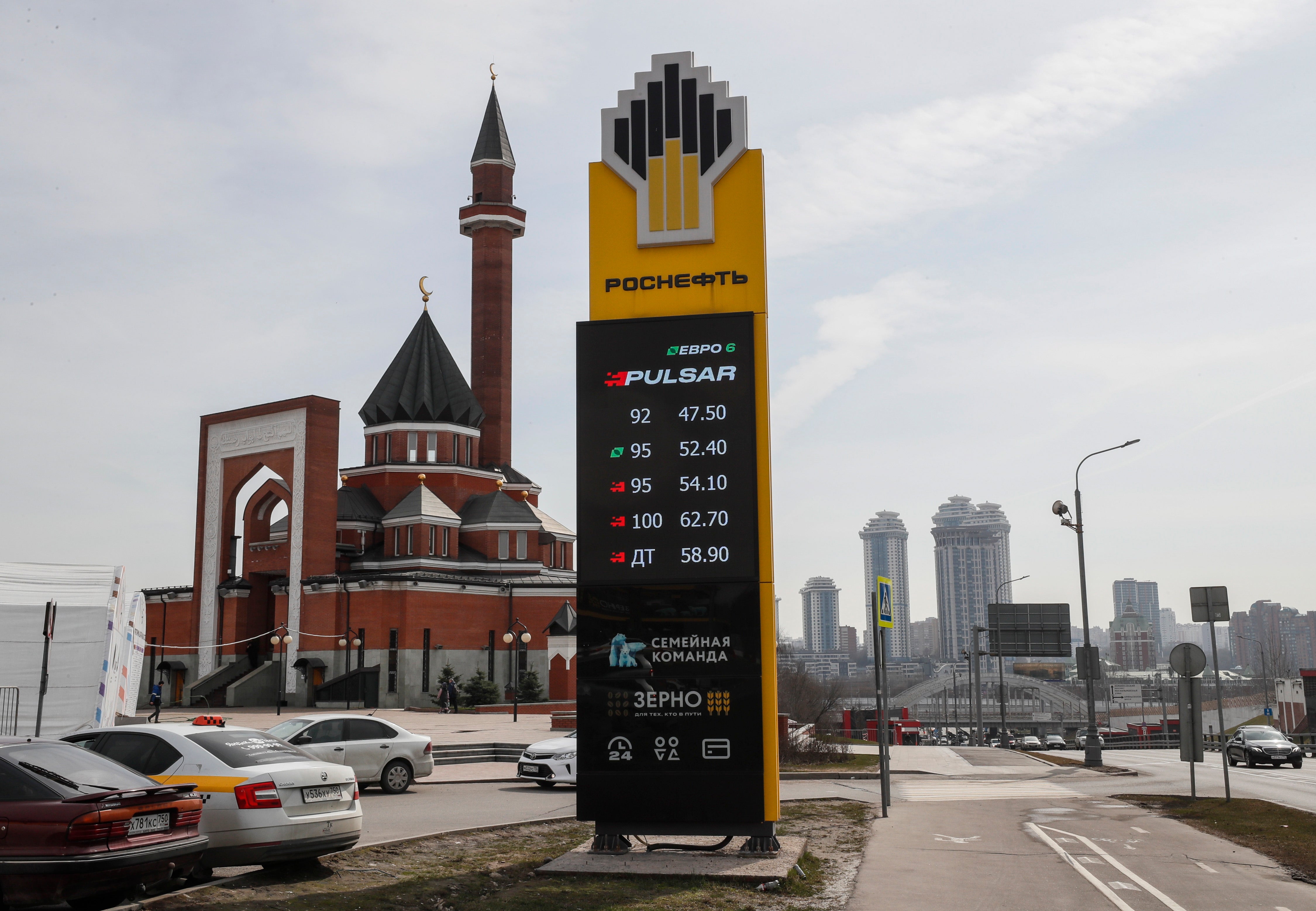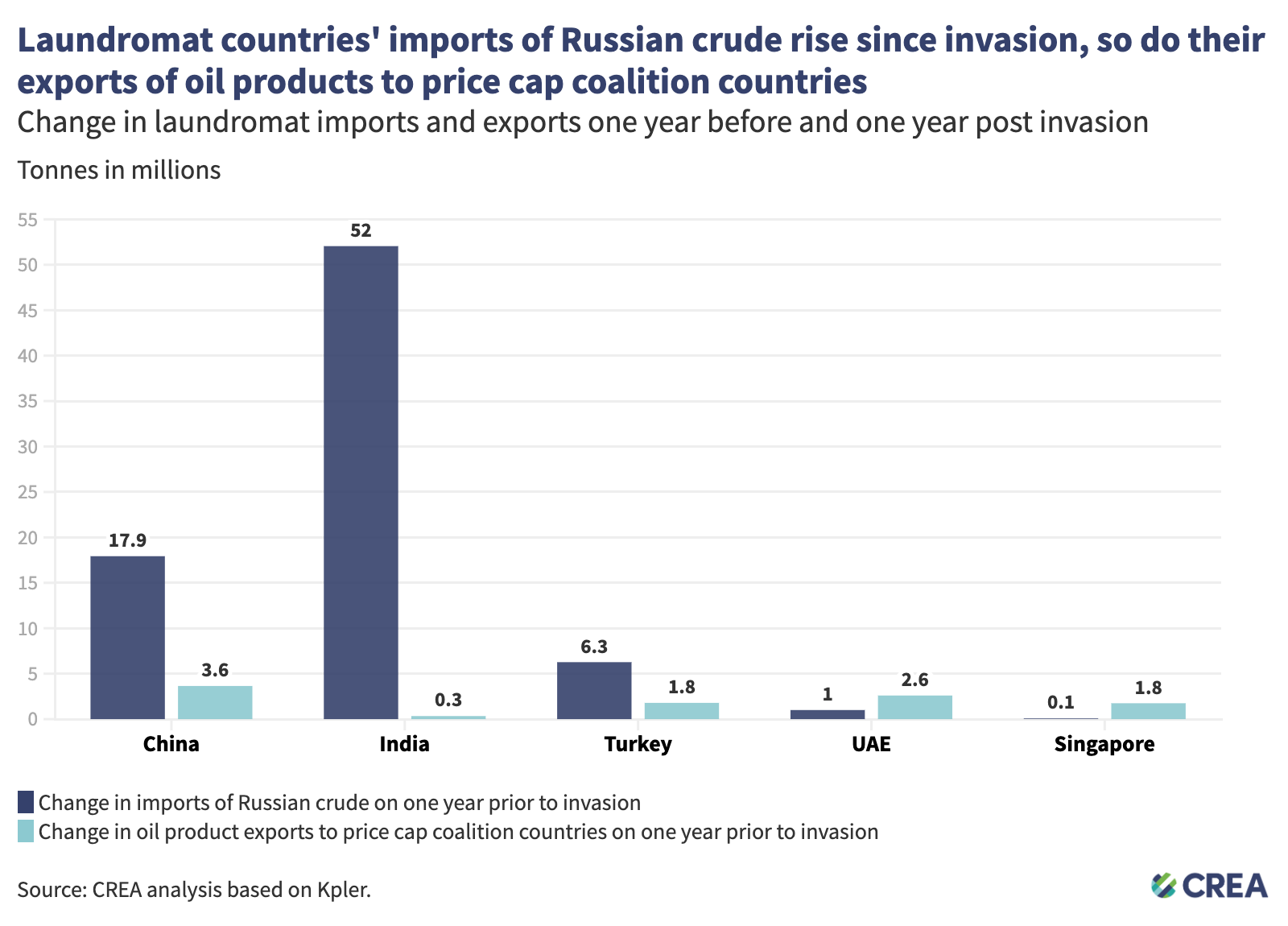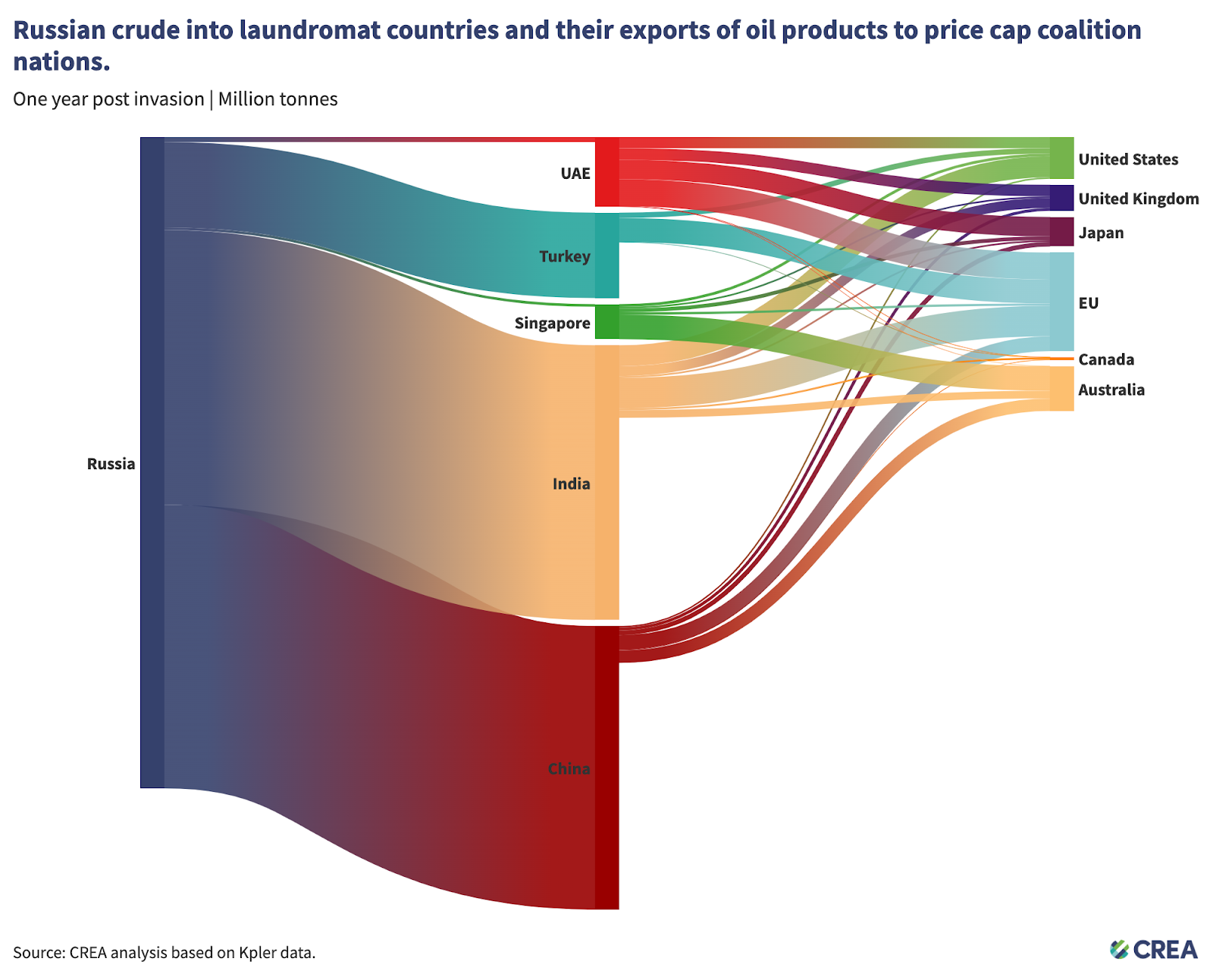EU is still largest importer of Russian oil due to loophole in sanctions, report claims
EU and G7 ‘fail to lower the price cap to level that would truly deny Russia excess profits from oil exports’

Your support helps us to tell the story
From reproductive rights to climate change to Big Tech, The Independent is on the ground when the story is developing. Whether it's investigating the financials of Elon Musk's pro-Trump PAC or producing our latest documentary, 'The A Word', which shines a light on the American women fighting for reproductive rights, we know how important it is to parse out the facts from the messaging.
At such a critical moment in US history, we need reporters on the ground. Your donation allows us to keep sending journalists to speak to both sides of the story.
The Independent is trusted by Americans across the entire political spectrum. And unlike many other quality news outlets, we choose not to lock Americans out of our reporting and analysis with paywalls. We believe quality journalism should be available to everyone, paid for by those who can afford it.
Your support makes all the difference.The European Union is still the largest importer of oil products from Russia among the countries that have imposed some of the strictest sanctions on Moscow since the invasion of Ukraine, new data has revealed.
It is because the EU indirectly imported oil from countries that have become the main buyers of energy from Moscow undermining its own sanctions.
Five “laundromat” countries that export Russian crude to the EU were identified by the Centre for Research on Energy and Clean Air (CREA) in its new report.
The countries ramp up their imports and sell the refined products to Western counterparts that have imposed sanctions to whittle down the Kremlin’s revenues that fund the Ukraine invasion.
The five countries are China, India, Turkey, the United Arab Emirates (UAE) and Singapore.
The report noted that even though the EU currently uses legal means to import Russian oil by changing import origin, it continues to fund Vladimir Putin’s war chest.
The EU, Group of Seven (G7) countries and Australia have joined the US in imposing some of the strictest sanctions – an embargo on most oil export to Europe and a G7 price cap on Russian crude – to crack down on Russian crude oil and oil products.

Another round of sanctions – in which the EU embargoed refined products like diesel, gasoline and others – had taken effect in February this year. The price cap also applied to these products.
But imports of these products have increased “by leaps and bounds” from the “laundromat” countries – all of which became the largest importers of Russian crude since the invasion, the report said.
The EU, G7 countries and Australia have imported a total €42bn (£37bn) worth of oil products from the “laundromat” countries for the entire year since the Russian invasion, it found.
And the EU – which has claimed its sanctions are effective in reducing Russia’s revenues from energy exports – is the largest importer. Its oil imports have amounted to €7.7bn (£6.7bn) in the year since the invasion.
Lauri Myllyvirta, the co-author of the report and co-founder and lead analyst at CREA, said the imports blunt the effect of the sanctions on Russia.
“Increasing the imports of oil products from the main importers of Russian crude oil undermines the oil sanctions against Russia. On the other hand, clamping down on this trade is an opportunity to exert badly needed additional leverage and cut off financing for Russia’s brutal invasion of Ukraine,” he said.
He tells The Independent that the EU and G7 have “failed to lower the price cap to a level that would truly deny Russia excess profits from oil exports”.

“Of course the situation also highlights the oil dependency and lack of action to reduce oil demand by the EU and G7,” he said.
The imports of Russian crude oil by the five Asian and Middle East countries rose to more than 140 per cent in volume compared to the year before the war, with the total value of imports rising to €74.8bn (£66bn).
The report found the oil-sanctioning countries were responsible for the vast majority of the increase in the “laundromat” countries’ oil exports during the invasion.
Their exports to the West had increased by 80 per cent in value and 26 per cent in volume.
The price-cap coalition countries had increased imports of refined oil from China by 93 per cent, from India by 2 per cent, Turkey by 43 per cent, UAE by 23 per cent and Singapore by 33 per cent.
India, however, became the largest exporter of oil to price-cap coalition countries since December 2022 after the G7 cap kicked in.
Its exports rose to 3.8m tonnes, while China exported 3m tonnes.



Join our commenting forum
Join thought-provoking conversations, follow other Independent readers and see their replies
Comments